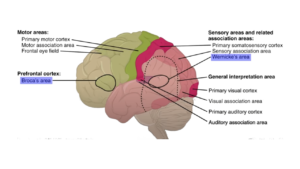Businesses make thousands of decisions every day. In fact, Bain analysts Michael C. Mankins and Lori Sherer assert, “The best way to understand any company’s operations is to view them as a series of decisions.”[1] They add, “We know from extensive research that decisions matter — a lot. Companies that make better decisions, make them faster and execute them more effectively than rivals nearly always turn in better financial performance.” Journalist Vikram Khanna agrees that “businesses make decisions all the time”; however, he insists many of those decisions are not the best decisions.[2] He explains, “Some have good outcomes, but many, if not most, do not.” If corporate operations are truly characterized by a series of decisions, then improving decision-making should be high on any business executive’s priority list.
Making Better Decisions
According to Khanna, “Behavioral economists and psychologists have tried to understand why decision-makers are prone to making systematic, predictable mistakes. One of them is professor of strategy Olivier Sibony at HEC business school in Paris and a former partner at McKinsey.” Sibony believes cognitive bias lies at the root of many poor decisions. In order to overcome these biases, decisionmakers need to think “critically about how decisions are made, or ‘deciding how to decide’.” Khanna interprets this to mean, “The key to good decisions, in other words, lies not in the brilliance of the decision-makers, but in the design of the decision-making process.”
Chief Executive Officers are generally assumed to possess good decision-making skills. However, Sibony told Khanna that charisma sometimes trumps sound judgment. Khanna explains, “The most glaring and costly mistake that companies make is how they decide to take big risks. It’s often the result of a charismatic CEO saying ‘I know this is a big risk, but I’m going to take it anyway’ — a reflection of overconfidence and excessive optimism that people have in the accuracy of their predictions — a common bias both in business and in life. Management teams often go along with the views of highly successful and confident CEOs, with no decision-making process. … But the most frequent mistake is the opposite of [risk-taking]. Bosses kill many risky projects that they should pursue but don’t, a reflection of risk aversion, another common bias.”
According to Sibony, the key to making better decisions is having in place a good decision-making process. But what does that mean? Mankins and Sherer conclude that most decisions should be data-driven. They explain, “Not surprisingly, companies that employ advanced analytics to improve decision-making and execution have the results to show for it.” That doesn’t mean that the human element should be eliminated from the process. Usama Fayyad, Executive Director of the Institute for Experiential AI at Northeastern University, believes the human element is essential for making analytics embedded in cognitive systems (aka artificial intelligence) even more effective.[3] To make his case, he looks at the complexity of modern supply chains. He writes, “Pressures such as market volatility, tightening labor, inflation, weather events, and supply shortages have a cascading effect on the global movement of goods.” And each of these pressures requires decisions to be made.
“The good news,” according to Fayyad, “is that, thanks to the proliferation of sensors, cameras, and digital tools, many of these conditions can be captured in data — a lot of data. Artificial intelligence (AI) gives us a means of understanding that data. This technology can be used to dynamically analyze complex data sets, helping companies predict demand, identify trade-offs, and optimize delivery routes. Together with subsets like machine learning (ML), which utilizes training data and feedback to progressively improve accuracy, AI allows firms to illuminate and even predict supply chain disruptions before they occur. More than anything, AI can help supply chain managers make better, more informed decisions.” Although it may sound like Fayyad is suggesting that the human element be eliminated from the decision-making process, he’s not. He explains, “A common stereotype is that AI will replace humans by fully automating data analysis and decision-making. That is not the case. While AI does rely on data analysis to deliver recommendations, often the full story of what is happening in the supply chain cannot be completely captured by the available data. Instead, recognition of many issues and their causes can come only from a human’s prior experience and intuition.”
Fayyad calls this blending of human/machine decision-making “experiential AI.” He writes, “The goal of experiential AI is to augment what humans do best (such as intuitive decision-making under uncertainty, common-sense reasoning, and understanding real-world complexity and subtlety) with what machines do best (such as crunching large amounts of data and documents, performing repetitive/robotic tasks, and operating at speed and scale) to achieve more robust, ethical, and resilient solutions.” There are circumstances in today’s fast-paced business world where decisions must be made more quickly than human intervention may permit. In such situations, Autonomous Decision Science™ (ADS®) can play a vital role. As I noted in another article, “ADS technology can autonomously analyze data, generate insights and make subtle, contextually informed, judgment-based decisions quickly, accurately and with limited human intervention, and then learn from the results of those decisions. It can effectively reshape the way companies structure and optimize their value chain.”[4]
Concluding Thoughts
Milan D. Đorđević, Director of Product Development at Proctorio, notes, “Artificial intelligence is reimagining the business world, boosting innovation and productivity, and helping organizations think bigger. Organizations can use AI to improve their products, processes and decision-making.”[5] How much can they improve? Fayyad reports, “There is good reason for supply chain managers to explore how to apply artificial intelligence in their operations. The global management consulting firm McKinsey & Co. estimates that by adopting AI in the supply chain, companies and their customers stand to gain $1.2 trillion to $2 trillion in economic value globally.” He adds, “One promising development that is helping drive better decision-making across the entire supply chain is the new field of cognitive analytics. Cognitive analytics gives structure to large data sets in forms more relatable to linguistic processing. Such systems can learn from interactions between data and human supervisors to provide detailed, contextualized insights.”
Đorđević asserts, “Organizations are under greater pressure to respond rapidly to shifting conditions.” Enterra Solutions® clients found this to be true during the pandemic. As a result, we developed the Enterra Global Insights and Decision Superiority System™ (EGIDS™) to help clients understand and respond to changing conditions. The system is on the leading edge of cognitive analytics. Fayyad concludes, “AI in the supply chain offers scalable levels of visibility, granular oversight of logistics, and dynamic feedback to support human-driven decisions. But these opportunities may require organizational refocusing as companies seek the right tools to measure and quantify outcomes.” In other words, companies need to adopt decision-making processes that improve business decisions using decision science.
Footnotes
[1] Michael C. Mankins and Lori Sherer, “Creating value through advanced analytics,” Bain Brief, 11 February 2015.
[2] Vikram Khanna, “The science and art of decision-making in business,” The Strait Times, 17 August 2022.
[3] Usama Fayyad, “Why ‘Experiential AI’ is a smart choice for supply chain leaders,” Supply Chain Quarterly, 14 October 2022.
[4] Stephen DeAngelis, “Why Manufacturers Need to Rethink AI in Supply Chain,” Industry Today, 27 May 2022.
[5] Milan D. Đorđević, “How Artificial Intelligence Can Improve Organizational Decision Making,” Forbes, 23 August 2022.




